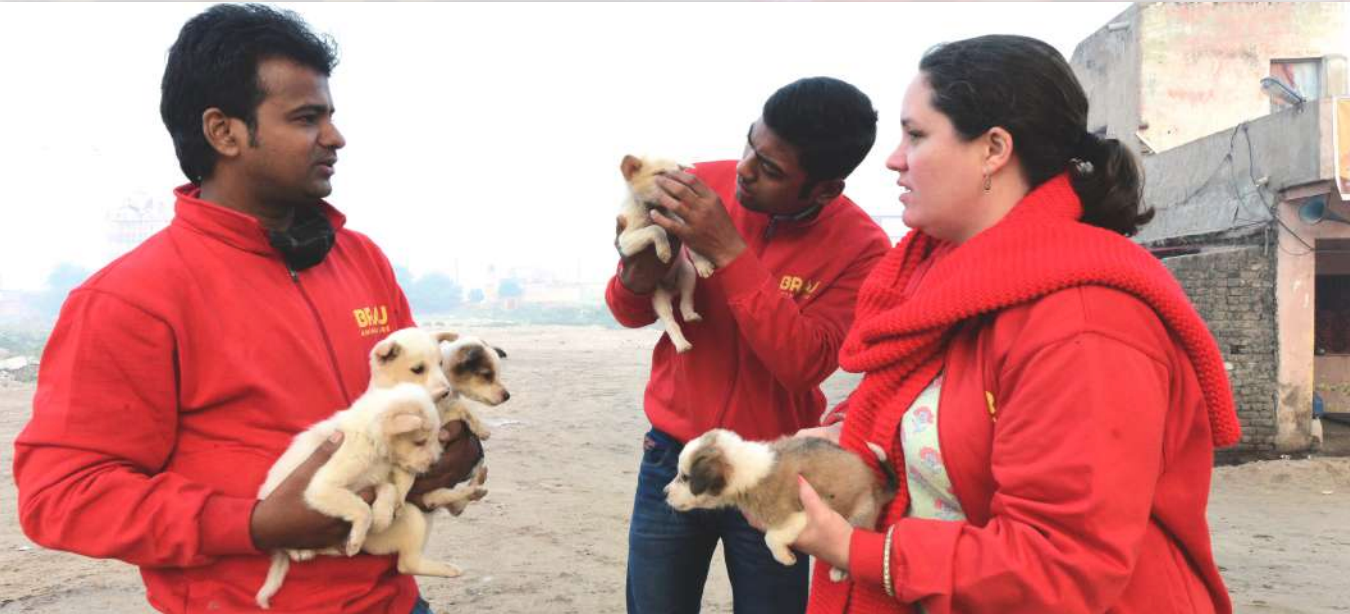The following article was recently published in Vrindavan Today magazine.
The rapid urbanisation of Vrindavan has been destructive in many ways, and the suffering of Braj’s animals is one of its most devastating effects. To address the complex and widespread problems these animals face, Braj Animal Care has bravely stepped forward to provide them with much-needed food and medical care.
Braj Animal Care was founded by Shri Chandan Goswami Maharaj of the Shri Radharaman Temple. Growing up in Vrindavan, Chandan Maharaj often witnessed cows eating garbage and dogs drinking black water directly from the sewers. As Shri Krishn’s beloved gaucharan bhumi was systematically replaced with concrete, the animals’ health condition continued to decline, and incidents of animals being hit by cars increased sharply with the worsening traffic. Their unbearable pain became the driving force that inspired Chandan Maharaj to start Braj Animal Care.
Chandan Maharaj and his team began feeding and providing medical care to animals on a small scale in late 2018, but during the first COVID-19 lockdown, the plight of the animals became all the more dire. Suddenly, the very meagre veterinary services in Braj became nonexistent. Even the veterinary college in Mathura closed and repurposed their lab as a COVID testing centre. Further, with restaurants closed and families rationing food, the garbage itself became devoid of scraps for the animals to eat.
It was at this time that Braj Animal Care took on the responsibility of feeding and caring for every stray animal in Braj. While everyone else was locked down, Braj Animal Care’s team was out in the streets facing harsh challenges from the police and administration as they executed this essential service. This experience emboldened them to help Braj’s animals on a large scale. After registering as an NGO in 2020, Braj Animal Care was able to serve many more animals, eventually hiring a full-time licensed veterinarian and a sizeable support staff.
Over the last two years, Braj Animal Care has provided medical treatment to approximately 12,000 dogs, cows, bulls and other animals throughout Braj. And through their daily feedings, they have distributed around 300,000 animal meals.
This month, Braj Animal Care has been forced to temporarily suspend its medical services until they attain a more sustainable model through fundraising. They are also focussing their efforts on the development and opening of their much-needed animal hospital and shelter. Simultaneously, they continue to serve 17,000 animal meals per month through their twice-daily feedings.





















